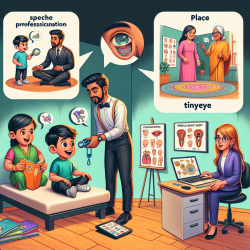Speech-language pathologists continually seek effective strategies to address the diverse needs of clients with phonological disorders. One innovative method that has garnered attention is the Rebus Approach, as detailed in "Improving Pronunciation: A Rebus Approach" by Edna Carter Young. This phonologically based articulation program is designed to eliminate three major phonological processes: syllable reduction, assimilation, and substitution. By incorporating visual cues in the form of rebuses—symbols representing words or parts of words—this approach aims to stabilize the use of phonemes in challenging contexts without introducing new sounds or correcting distortions.
The Rebus Approach is grounded in phonological theory, which differentiates between phonemic (how a sound is used) and phonetic (how a sound is produced) sound deviations. Many individuals with articulation disorders can produce specific phonemes correctly in some situations but fail to apply them consistently across different contexts. This program leverages the speaker's existing phonemic repertoire, focusing on strategic use rather than the acquisition of new sounds.
One of the program's core beliefs is that developing or deviant phonological systems can benefit from specific strategies to make words easier to recall and pronounce correctly. It employs two key procedures: positioning target phonemes in the stressed part of the word and using concrete visual cues (rebuses) to represent word components. This approach capitalizes on the ease of processing and recalling visual symbols compared to auditory stimuli or graphic symbols, offering a unique avenue for speech therapy.
However, the program's effectiveness is contingent on the client's level of metalinguistic awareness, as it requires the ability to understand and manipulate linguistic elements such as phonemes and syllables. This requirement may limit its applicability to certain age groups or cognitive levels, suggesting a more suitable use for school-age children, older clients, and speakers learning English as a second language.
The Rebus Approach is not without its limitations. Its focus on only three phonological processes and reliance on the client's existing phonemic repertoire may not address all types of phonological disorders. Moreover, the vocabulary and materials provided might not be equally effective across all client demographics. Nevertheless, for speech-language pathologists treating phonological disorders, the Rebus Approach offers a structured, theory-based program that can complement existing treatment methodologies.
To implement the Rebus Approach in practice, speech-language pathologists should consider the following steps:
- Assess the client's phonemic repertoire to identify phonemes that are produced correctly in some contexts but misapplied in others.
- Introduce rebuses as visual cues for target words, emphasizing the stressed position of the target phonemes.
- Incorporate exercises and activities that reinforce the association between rebuses and their corresponding sounds/words.
- Monitor progress and adjust the selection of target words and rebuses based on the client's evolving abilities and needs.
For speech-language pathologists interested in exploring this approach further or seeking to integrate it into their practice, additional research and resources are invaluable. Understanding the underlying phonological theories and gaining insight into the practical application of rebuses can enhance the effectiveness of speech therapy sessions.
In conclusion, "Improving Pronunciation: A Rebus Approach" presents a compelling articulation program based on phonological theory. By focusing on the strategic use of phonemes and incorporating visual cues, the Rebus Approach offers a novel method for addressing phonological disorders. While it may not be universally applicable, its principles can enrich the toolkit of speech-language pathologists, providing an alternative strategy for improving pronunciation and phonemic awareness.
To read the original research paper, please follow this link: Improving Pronunciation: A Rebus Approach.










